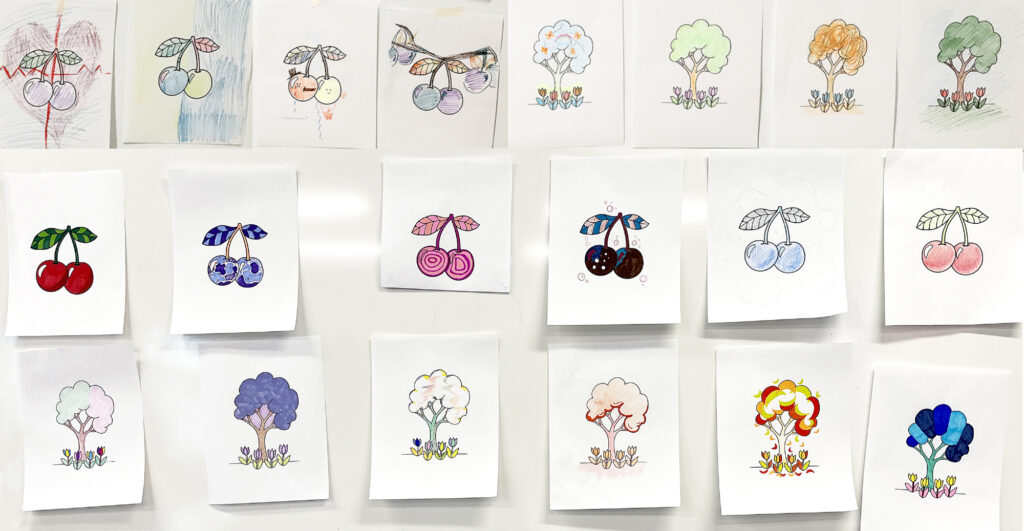
Imagination Lab
The Imagination Lab investigates the symbiotic connection between imagination and emotional well-being. Projects explore the hypothesis that by first helping people embark in inner-growth – identifying internal barriers – and learn the science of imagination, they will be more receptive to harness their ability to imagine.
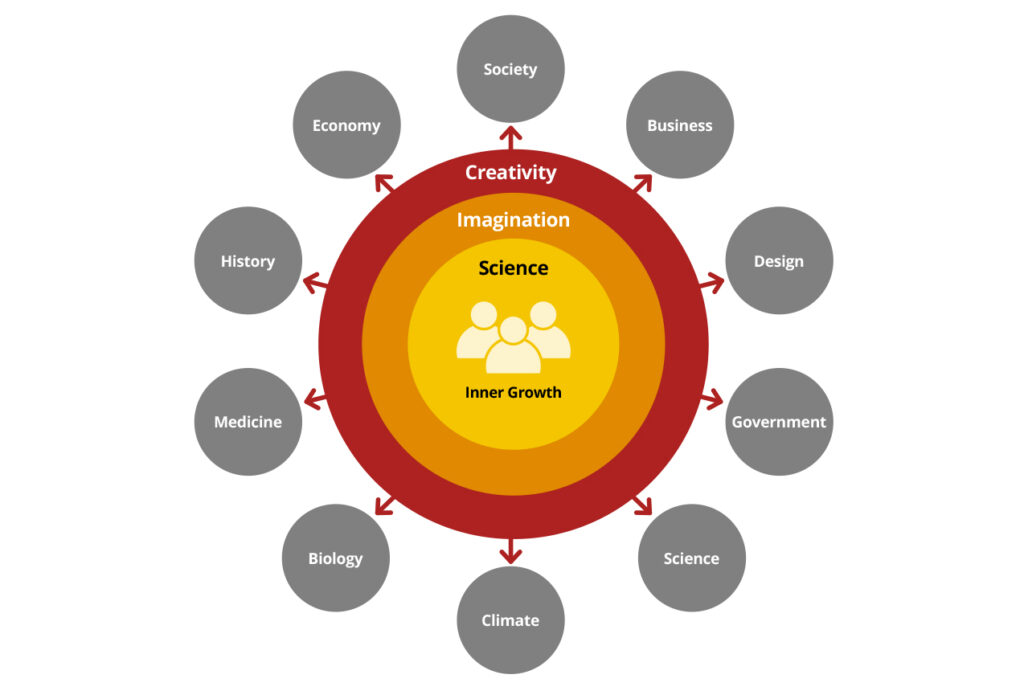
The pace of global change has only grown in recent years, spiraling uncertainty about the present and future. Discouraging news reported daily increases feelings of anxiety, making people feel lonelier and unhappier. Everyone can imagine alternatives; it can be fun, freeing, and hopeful, but we struggle to be optimistic and imagine positive futures or paths forward different from what we know. Rather, we often imagine apocalyptic scenarios – e.g., worse pandemics – or negative situations rooted in current trends – e.g., AI takes over humanity. Our imagination has become constrained and underdeveloped, with most ideas being permutations of what we have already seen and known. Both internal and external factors contribute to the current individual and social imagination crisis, and increasing unhappiness.
This research work aims to contribute to revert both crises: lack of imagination and people’s poor emotional well-being. Results inform the development of interventions to empower people to break with the status quo, dream, and be happier.
Current projects
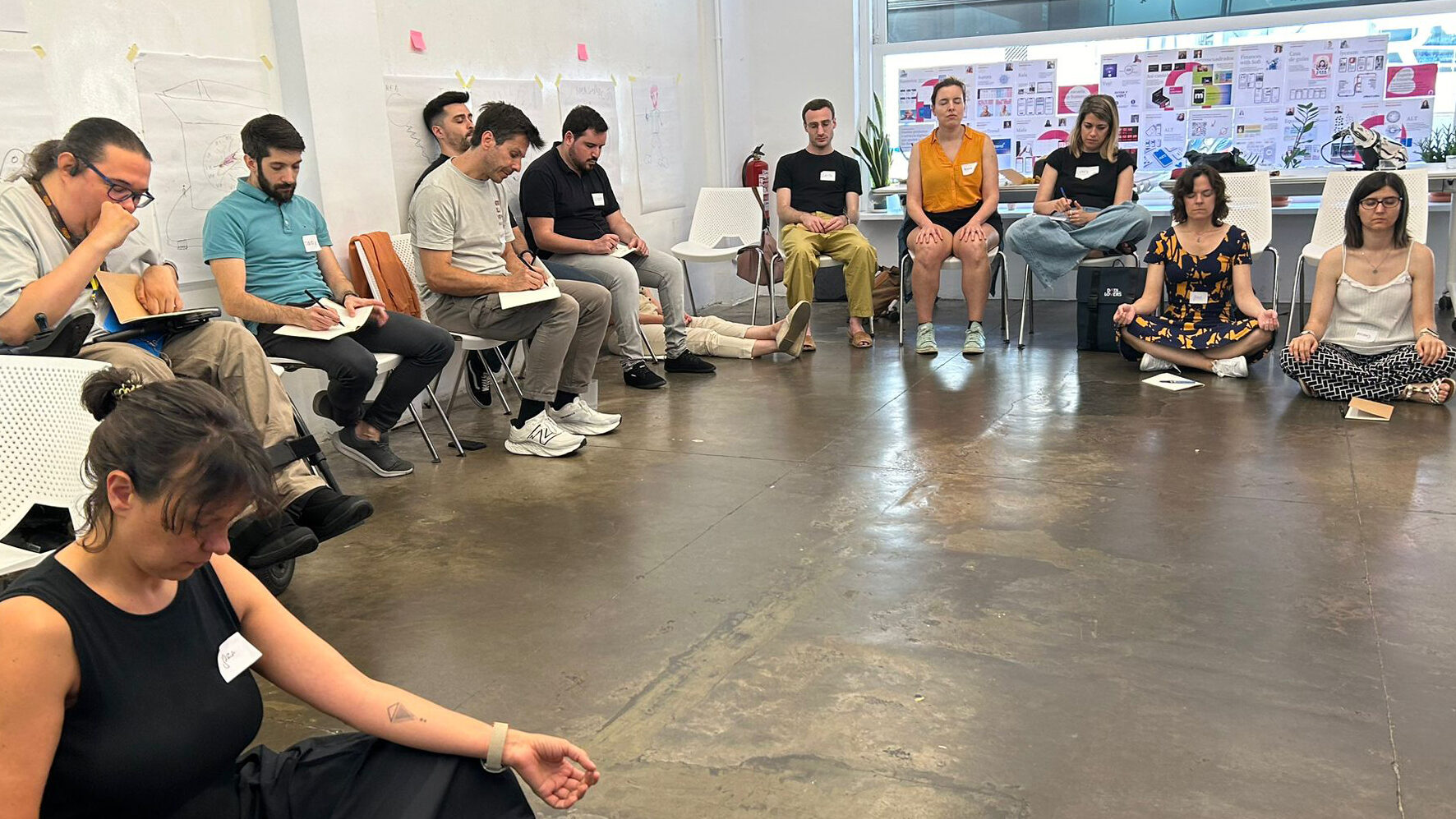
How can Imagination Bring the Smile Back?: Boosting Flourishing Among The Youth
Emotional well-being and imagination are strongly connected, suggesting a symbiotic relationship in which both constructs are critical for challenging dominant social views and surfacing unconventional, positive alternatives.
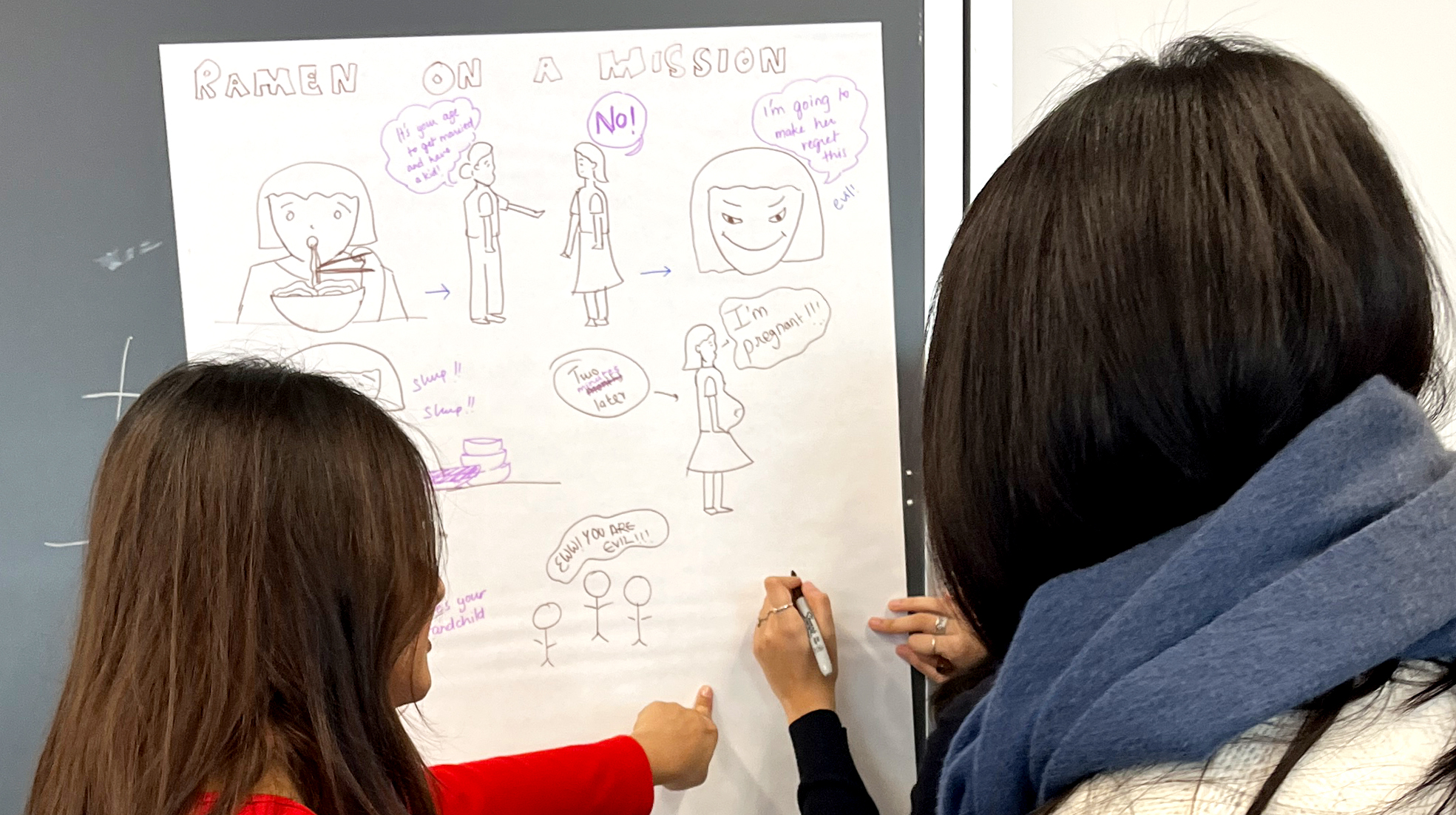
Cultivating Unbound College Students: A Creativity Longitudinal Study
This 4-year study explores the connection between social-emotional health, problem-solving, and individual creativity in higher education by understanding the impact of creativity training throughout the college journey.
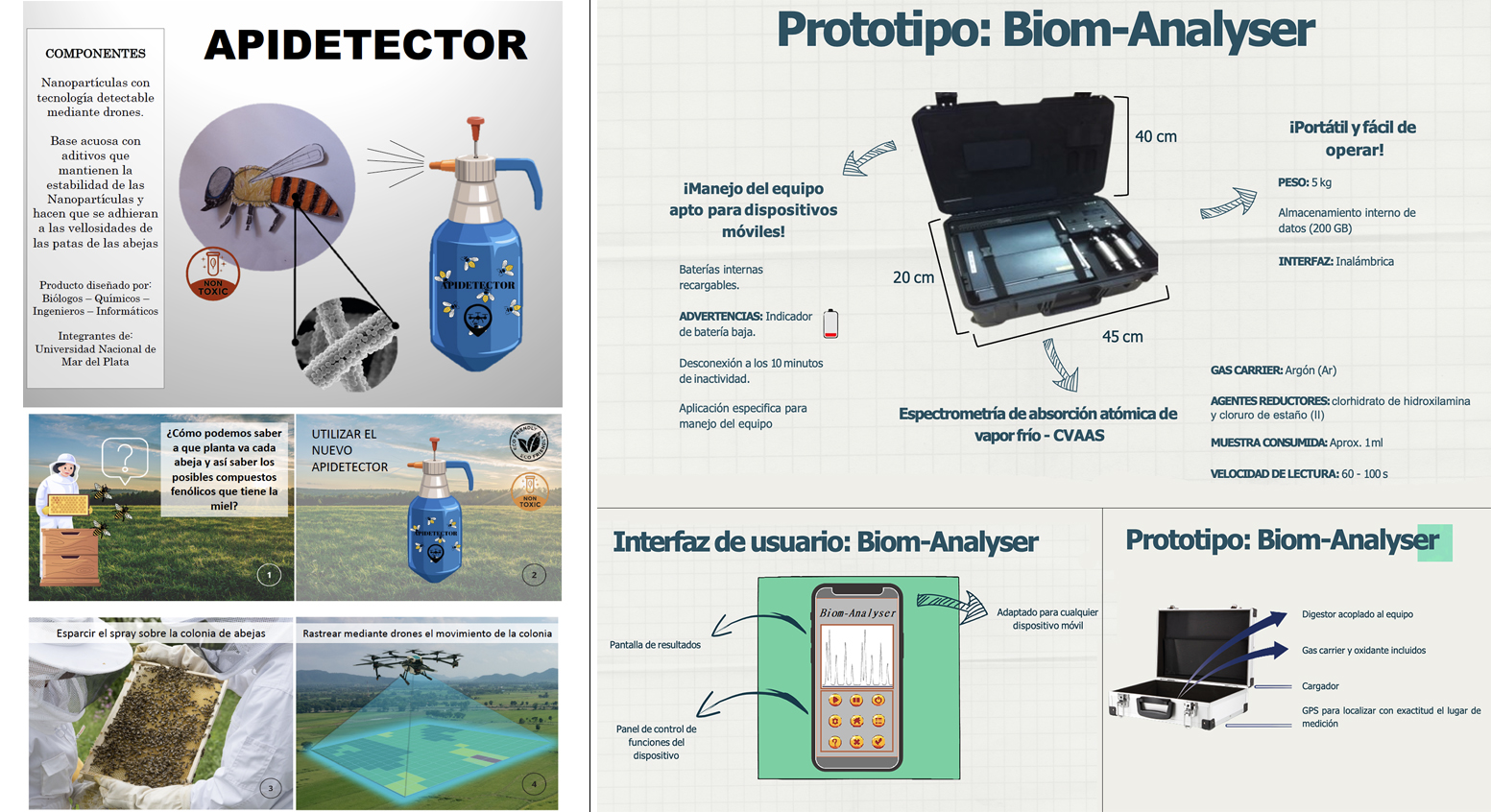
Creativity in Doctoral Education: Cultivating Scientific Imagination
Data collected from teaching three creativity courses to PhD biology students shed light on early career researchers’ creative habits and how biology experts understand scientific creativity. Findings are published in here (2024) and here (2025).
You must be logged in to post a comment.